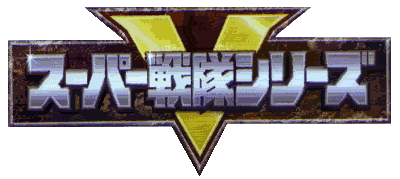

SENTAI SIDES
| 2007 | Gekiranger | Mine |
|---|---|---|
| 2006 | Boukenger | Mine |
| 2005 | Magiranger | Mine |
| 2004 | Dekaranger | Mine |
| 2003 | Abaranger | Mine |
| 2002 | Hurricanger | Mine |
| 2001 | Gao Ranger | Mine |
| 2000 | Time Ranger | Mine |
| 1999 | Gogofive | Mine |
| 1998 | Gingaman | Mine |
| 1993 | Dairanger
The Ki to Your Inner Power, fanfic
| Mine Kamen Ranger's |
| 1992 | Zyuranger
When Dinosaurs Roamed the Earth, fanfic
| Mine Kamen Ranger's |
| 1991 | Jetman
Graphic Novel Little Lost Ranger, fanfic
| Mine and Mine Kamen Ranger's |
| 1975 | Go Ranger | Mine |
| October '97-'98 | Kamen Rider Black | Barsi's | 2000 | Kuuga | Toei's |
|---|---|---|
| 2002 | Agito | Toei's |
| 2002 | Ryuuki | Mine |
| 2003 | 555 | Mine, but very out-of-date |
OTHER LINKS
IN PROCESS

Henshin Justice Unlimited
Much love for them.

These lovely, insane people subtitle!
Joe Rovang's Power Rangers/Sentai Site
Stopped at Hurricanger.
I started watching Sentai programs with Jetman. That was really an accident. I was visiting a Japanese friend's house, and her little boy, 3-years old, was watching the program. It caught my eye, and after seeing a few episodes, I was hooked. What hooked me about Jetman? Well, the first thing was the gorgeous guy that episode happened to have in it. But as I watched the series I became firmly attached to the way the stories were told, and the underlying plots. They were good, but they also rapidly showed up what I came to regard as the deficiencies of American children's television.
Bad guys are ugly.
Bad guys are stupid
Bad guys can't actually hurt you. Or at least not for long.
And if you don't believe me, just go rent the Home Alone movies. They are a primary example of the genre. The contrasting rules of Sentai seem to be:
Don't be fooled by a pretty face, you might get killed.
Bad guys are dangerous.
It can be too late.
Sometimes I think the writers of whichever Sentai program get so involved in telling their stories, that they forget who their target audience is supposed to be. Then again perhaps they don't. It's hard to say. My mother's comment, upon watching a few Jetman, was "They play this for children?!" We concluded that if it were American, it would be one of those late-night horror flicks. I think it was the giant teddy bear firing blasts that left smoking skeletons in their wake that did it.
The basal plot for a Sentai series is this: An enemy threatens the world, a team of heroes fights them and, in the end, wins. The fun part involves reaching that end. On the way there, sometimes heroes get killed. Sometimes heroes reach the end and then get killed anyway. However, you can usually expect all the villains to be dead by the end.
These days Sentai shows run for one year, from mid-February to mid-February. The default number of heroes is five (or these days it seems to be six), and there are robots for each of them which combine to form a giant fighting machine. Aside from that similarity between each series, there is considerable difference between them in how the story is told, what the underlying message is, in the personalities of the characters....
I can hear you muttering, "Well, yeah, there is the giant killer teddy-bear, but how does this differ from Power Rangers, really?" Anyone who follows both sets can tell you. And so can I. This is a Power Rangers quote from the 2000 edition, Lightspeed Rescue: "The city suffered minimal damage and no one was hurt!" That pretty much sums it up. Then there was the time a hero fought a villain, and under his commander's orders was forced to put out a fire in a parking garage, rather than get a family out of danger, so a little boy was injured. He was very angry with his commander, until he discovered that near the fire were gas tanks. And imagining the garage exploding with fireballs, he thinks: "If I hadn't put out the fire, more people might have been hurt!" Hurt. For crying out loud, if the garage had gone up in flames, people would have died! Sorry, off on a tangent, here.
Being as America is a country full of a multitude of cultural and ethnic diversity, one underlying theme of Power Rangers is: No matter how different we look, we're all the same underneath. This is an excellent theme. The Sentai underlying theme on the same subject, being from a country where just about everyone has various shades of black hair and black eyes, is: No matter how different we are, we can work together for the common good. And that, absolutely, is an excellent theme. I cannot say that either is better, but in a way, I think the Sentai one is more true. It acknowledges that people can be drastically different from each other. However, it is also more idealized. Namely, people who are drastically different from each other rarely work together.